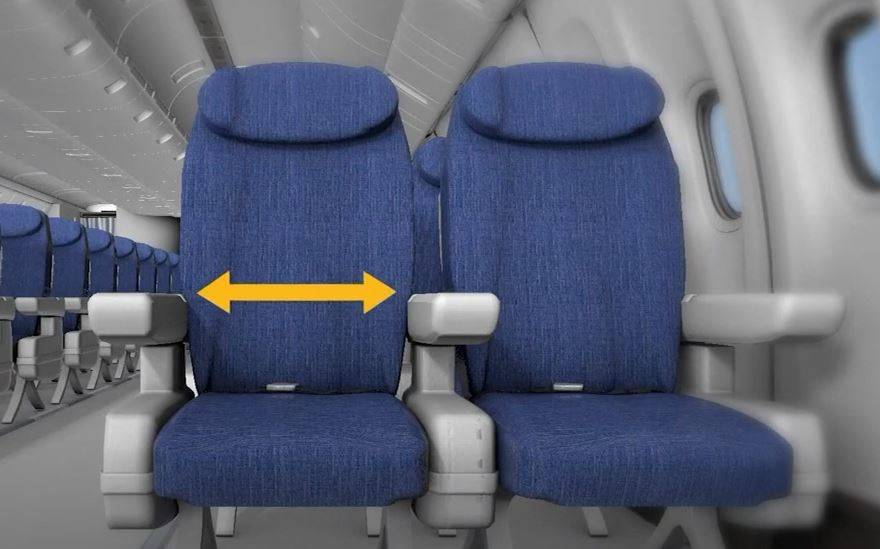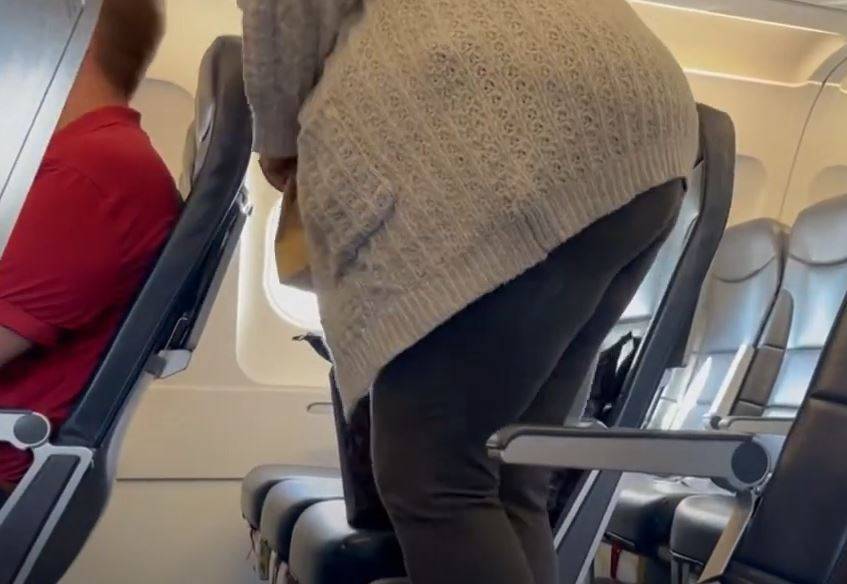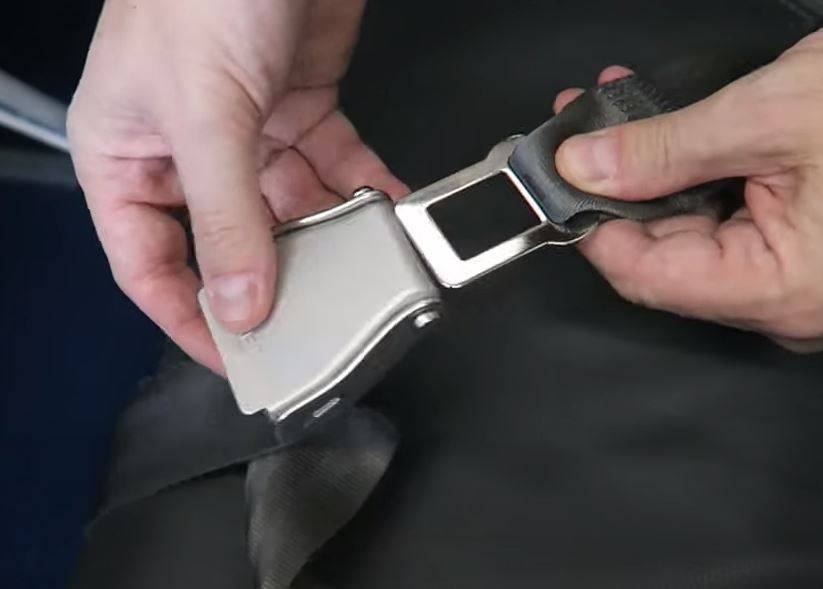Comprehensive Guide to Special-size Passenger Policies
I was once on a RJ commuter jet from Rochester to Chicago, after boarding I made my way to my window seat to relax and maybe even get 10 minutes of sleep. Before I could close my eyes, things became uncomfortable very fast. My seatmate just didn't fit in her seat, and I was pretty much getting pinned against the window. I knew this was going to be a temporary situation - and I also knew that this passenger was very embarrased by the situation. Thankfully, the flight wasn't full and the flight attendant politely suggested that they could take another seat. My hope is the information in this article will be helpful for anyone researching how to make their trip more comfortable, for themselves and for others.
It is no big secret that airline coach seats are not exactly spacious. Like my example, passengers often sit cramped and uncomfortable for the duration of their travels, as airline seats have shrunk significantly in the past few decades, making the process of flying less comfortable. Today, many passengers find that they have just enough space in their seat to buckle up and remain in virtually the same position during their flight.
However, there are some flyers who find they do not have enough space to even sit in their seat and buckle their seatbelt. These passengers are referred to as passengers of size, and many airlines require that these passengers pay an additional fee to have a second seat. In general, obese passengers on airlines who require a seatbelt extender and/or cannot lower the armrests between seats are asked to pay for a second seat on their flight, unless there are two empty seats together somewhere on the plane.
Special size passengers have little to no choice when it comes to this rule. Every airline has an overweight passenger policy, and passengers are required to accept the rule. Since each airline has its own policy, airline passengers of size need to become familiar with the policies of their airline prior to travel.
Comparing Airline Policies
Special-size passengers face unique challenges while flying, including limited space and comfort. Airlines have implemented specific policies to address these needs and ensure the safety and comfort of all passengers. It's crucial for passengers to check the specific policies of their chosen airline before booking their flight, as these policies can vary significantly.
The table below provides a side-by-side comparison of the policies of various airlines regarding extra seats for special-size passengers. This comparison helps passengers quickly identify which airlines offer refunds, which require the purchase of extra seats, and other relevant details to ensure a comfortable flying experience.
| Airline | Extra Seat Required? | Refund for Extra Seat? | Additional Information |
|---|---|---|---|
No | Yes | Complimentary extra seat if needed at gate | |
Yes | No | Option to upgrade to higher class, rebook at no extra cost | |
Yes | No | Rebooking required if no extra seat available, double baggage allowance | |
No | No | May ask to move or take a later flight | |
No | No | Simple online booking for extra seat | |
No | No | Accommodation if flight not fully booked | |
Yes | No | Emphasizes booking extra seat during booking process | |
Yes | No | Contact customer service for arrangements | |
No | No | Encourages booking additional seat in advance |
Individual Airline Policies
Southwest Airlines encourages passengers who need additional space to proactively purchase the necessary number of seats before travel. The armrest is considered the boundary between seats. Passengers can request a refund for the cost of the additional seat after travel, a unique and customer-friendly policy. If a passenger prefers not to pre-purchase an extra seat, they can discuss their seating needs with the Customer Service Agent at the gate. Complimentary additional seating may be provided if deemed necessary. Southwest’s commitment to customer comfort and flexibility is often praised by passengers.
American Airlines requires passengers who need more space to purchase an additional seat. Passengers can request two adjacent seats at the airport or upgrade to a higher class of service, paying the fare difference. If accommodations can't be made on the original flight, passengers can rebook on another flight with available seating at no extra cost. While some passengers appreciate the clear policy, others feel it can be inconvenient and costly.
United Airlines requires passengers who cannot fit comfortably in a single seat to purchase an additional seat. Criteria include being able to sit with the armrests down, wear a seatbelt properly, and not encroach on adjacent seats. If no additional seat is available, rebooking on the next flight with availability is necessary. The checked baggage allowance is doubled when two seats are purchased. This policy is often noted for its clarity but can lead to last-minute changes for passengers.
Delta Airlines recommends passengers purchase an extra seat if they need a seatbelt extender or cannot lower the armrest. Passengers encroaching on another’s space may be asked to move or take a later flight with available seating. Delta’s flexible approach aims to balance passenger comfort with operational feasibility, though it sometimes results in difficult choices for passengers on full flights.
JetBlue Airlines allows passengers to book an extra seat for comfort. Booking an additional seat can be done online or by contacting JetBlue customer service. Policies ensure passengers have adequate space and comfort during the flight. JetBlue’s straightforward policy is appreciated by many for its simplicity and ease of use.
Alaska Airlines offers passengers the option to purchase an extra seat for additional space and comfort. Passengers who require a seatbelt extender or cannot lower the armrest are advised to book an extra seat in advance. If the flight is not fully booked, passengers may be accommodated without additional cost. Alaska Airlines strives to ensure that all passengers have a comfortable and safe journey.
Spirit Airlines requires passengers who need more space to purchase an additional seat. The airline emphasizes the importance of passenger safety and comfort and advises passengers to make arrangements for extra seating during the booking process. Spirit Airlines is known for its budget-friendly fares, and passengers are encouraged to review seating policies before travel to avoid unexpected costs.
Frontier Airlines advises passengers who require more space to purchase an additional seat. The airline’s policy ensures that all passengers can travel comfortably and safely. Passengers are encouraged to contact customer service to discuss their seating needs and make appropriate arrangements before their flight.
Air Canada offers special accommodations for passengers who need extra space. The airline allows passengers to book an additional seat in advance to ensure comfort during their journey. Air Canada is committed to providing accessible travel services and encourages passengers to review their policies and make necessary arrangements ahead of time.
Tips for Special-size Passengers
- Book flights early to ensure better seat selection and availability.
- Request information about seat sizes and armrest widths from the airline.
- Consider booking directly with airlines to ensure the best options are available.
- Join frequent flyer programs to take advantage of benefits that might ease the travel experience.
- Ask for extra legroom seats and seat belt extenders when booking or at the gate.
- Choose airlines that offer more seat space and comfort, based on reviews and recommendations.
- Inform the airline of any special requirements well in advance of the travel date.
FAQ: Special-size Passenger Policies
Find more help here for your journey through the airport




